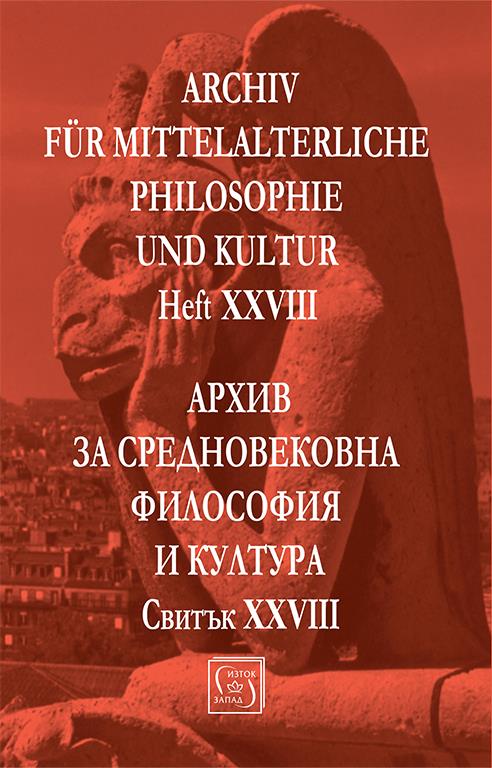Природа/същност според византийските философи
Nature/essence according to the Byzantine philosophers
Author(s): Georgi KaprievSubject(s): Christian Theology and Religion, Philosophy, History of Philosophy, Metaphysics, Theology and Religion, Philosophy of Middle Ages, Systematic Theology
Published by: Издателство »Изток-Запад«
Keywords: nature; essence; constitutive dynamic; the Cappadocians; Maximus the Confessor; John Damascene; Photius of Constantinople
Summary/Abstract: Following the main line of Byzantine philosophical thought, the early authors already redefine almost all the concepts they inherited from the Hellenic tradition. An important place in this line is taken by the terms “nature” and “essence”, which were considered synonyms at least since the 4th century. In the text that has become known as Letter 38, Basil the Great introduces “nature” as a name referring to the universal nature (κοινὴ φύσις) and not to a specific being. The Cappadocians do not question the reality of being of the general nature also in the created world. But also according to them, it is not existing otherwise than in the individuals containing the respective nature. On the way, by which the difference between the common nature and the individual bearer of this nature is drawn, they put especially great emphasis. In the line of thought between the Cappadocians and John Damascene, the rule is established that the “essence” is predicated only with respect to self-subsisting beings. Maximus the Confessor summarizes in his definitions what has been achieved up to him and extends it. Damascene defines the nature as the common logos of the being of the things having the same essence, while “hypostasis” marks the independent existence of each nature. Already in the 6th century, in the work of Leontius of Byzantium, the essential difference between nature simply (or at all) and in itself on the one hand, and nature in the individual subject, on the other hand, is asserted. This position can be met almost literally in John Damascene, though he clarifies it further. Nature/essence is primarily conceived as a certain constitutive dynamic, which realizes itself through its own forces and energies. The essence or nature of a thing is primarily a source of energetic manifestations.
Journal: Архив за средновековна философия и култура
- Issue Year: 2022
- Issue No: 28
- Page Range: 219-228
- Page Count: 10
- Language: Bulgarian
- Content File-PDF

